| Listing 1 - 10 of 32 | << page >> |
Sort by
|

ISBN: 052182804X 0521535247 9780521828048 9780521535243 Year: 2003 Publisher: Cambridge: Cambridge university press,
Abstract | Keywords | Export | Availability | Bookmark
 Loading...
Loading...Choose an application
- Reference Manager
- EndNote
- RefWorks (Direct export to RefWorks)
Economic policy and planning (general) --- Economic policy --- Capitalism --- Decision Making --- Economics --- Decision making --- Economic theory --- Political economy --- Social sciences --- Economic man --- Economic nationalism --- Economic planning --- National planning --- State planning --- Planning --- National security --- Social policy --- Deciding --- Decision (Psychology) --- Decision analysis --- Decision processes --- Making decisions --- Management --- Management decisions --- Choice (Psychology) --- Problem solving --- Market economy --- Profit --- Capital
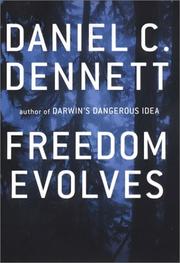
ISBN: 0670031860 9780670031863 Year: 2003 Publisher: New York (N.Y.): Viking,
Abstract | Keywords | Export | Availability | Bookmark
 Loading...
Loading...Choose an application
- Reference Manager
- EndNote
- RefWorks (Direct export to RefWorks)
Free will and determinism. --- Decision making. --- Decision making --- Free will and determinism --- Compatibilism --- Determinism and free will --- Determinism and indeterminism --- Free agency --- Freedom and determinism --- Freedom of the will --- Indeterminism --- Liberty of the will --- Determinism (Philosophy) --- Deciding --- Decision (Psychology) --- Decision analysis --- Decision processes --- Making decisions --- Management --- Management decisions --- Choice (Psychology) --- Problem solving
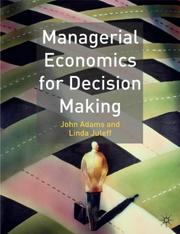
ISBN: 0333961110 9780333961117 Year: 2003 Publisher: New York: Palgrave,
Abstract | Keywords | Export | Availability | Bookmark
 Loading...
Loading...Choose an application
- Reference Manager
- EndNote
- RefWorks (Direct export to RefWorks)
Managerial accounting. --- Decision making. --- 658 --- Business management, administration. Commercial organization --- 658 Business management, administration. Commercial organization --- Decision Making. --- Decision making --- Managerial accounting --- Management accounting --- Accounting --- Deciding --- Decision (Psychology) --- Decision analysis --- Decision processes --- Making decisions --- Management --- Management decisions --- Choice (Psychology) --- Problem solving --- 658 Zaakvoering, administrat --- Zaakvoering, administrat
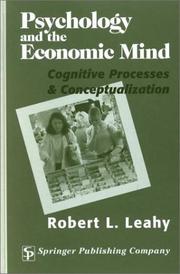
ISBN: 082615042X 9786611813604 1281813605 0826150438 9780826150431 9780826150424 9781281813602 6611813608 Year: 2003 Publisher: New York, N.Y. Springer Pub. Co.
Abstract | Keywords | Export | Availability | Bookmark
 Loading...
Loading...Choose an application
- Reference Manager
- EndNote
- RefWorks (Direct export to RefWorks)
This book elaborates on a multidimensional model of decision-making that applies to how individuals make ""mundane decisions."" Decisions about pursuing relationships, exercise, work, or anything where people might have to ""invest"" time or behavioral effort are examples. The author utilizes cognitive-developmental theory to understand how children and adolescents make sense of economic inequality. This modern portfolio theory model of decision-making applies economic concepts to everyday life and may help us understand why individuals differ in their willingness to take risks. It also contri
Risk-taking (Psychology) --- Decision making. --- Cognitive therapy. --- Economics --- Cognition. --- Economic aspects. --- Psychological aspects. --- Behavioral economics --- Behavioural economics --- Cognitive-behavior therapy --- Cognitive-behavioral therapy --- Cognitive psychotherapy --- Deciding --- Decision (Psychology) --- Decision analysis --- Decision processes --- Making decisions --- Management --- Management decisions --- Risk behavior --- Risky behavior --- Taking risks --- Decision making --- Psychology --- Psychotherapy --- Choice (Psychology) --- Problem solving --- Human behavior
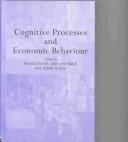
ISBN: 0203929942 1283888122 1134362293 0415320054 0415758610 9781134362295 9780203929940 9780415320054 9781283888127 9781134362240 9781134362288 9780415758611 1134362285 Year: 2003 Publisher: New York: Routledge,
Abstract | Keywords | Export | Availability | Bookmark
 Loading...
Loading...Choose an application
- Reference Manager
- EndNote
- RefWorks (Direct export to RefWorks)
In recent years the understanding of the cognitive foundations of economic behavior has become increasingly important. This volume contains contributions from such leading scholars as Adam Brandenburger, Michael Bacharach and Patrick Suppes. It will be of great interest to academics and researchers involved in the field of economics and psychology as well as those interested in political economy more generally.
Economics --- Economic man. --- Cognition. --- Emotions and cognition. --- Decision making. --- Psychological aspects. --- Deciding --- Decision (Psychology) --- Decision analysis --- Decision processes --- Making decisions --- Management --- Management decisions --- Cognition and emotions --- Homo oeconomicus --- Behavioral economics --- Behavioural economics --- Decision making --- Choice (Psychology) --- Problem solving --- Cognition --- Psychology --- Human beings --- Self-interest --- Economic man --- Emotions and cognition --- Psychological aspects --- Economics - Psychological aspects
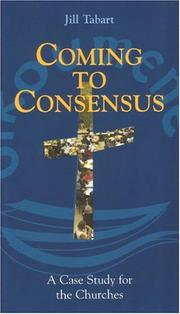
ISBN: 2825413925 Year: 2003 Publisher: Geneva WCC
Abstract | Keywords | Export | Availability | Bookmark
 Loading...
Loading...Choose an application
- Reference Manager
- EndNote
- RefWorks (Direct export to RefWorks)
Decision making --- Discernment (Christian theology) --- Group decision making --- 28*0 --- 28*0 Oecumenische beweging. Oecumenische actie --- Oecumenische beweging. Oecumenische actie --- Collective decision making --- Decision-making, Group --- Christian life --- Deciding --- Decision (Psychology) --- Decision analysis --- Decision processes --- Making decisions --- Management --- Management decisions --- Choice (Psychology) --- Problem solving --- Religious aspects&delete& --- Christianity --- Ecclesiology --- Religious aspects --- Decision (Christian theology)

ISBN: 1107137357 1280436689 0511170262 0511062281 0511206178 0511297335 0511610211 0511070748 9780511062285 9780511610219 9780521824583 0521824583 9781280436680 0521824583 0521531713 9780521531719 0521531713 Year: 2003 Publisher: Cambridge, U.K. ; New York : Cambridge University Press,
Abstract | Keywords | Export | Availability | Bookmark
 Loading...
Loading...Choose an application
- Reference Manager
- EndNote
- RefWorks (Direct export to RefWorks)
In this 2003 book Frederic Schick develops his challenge to standard decision theory. He argues that talk of the beliefs and desires of an agent is not sufficient to explain choices. To account for a given choice we need to take into consideration how the agent understands the problem, how he sees in a selective way the options open to him. The author applies his new logic to a host of common human predicaments. Why do people in choice experiments act so often against expectations? Why do people cooperate in situations where textbook logic predicts that they won't? What exactly is weakness of will? What are people reporting when they say their lives have no meaning for them? This book questions the foundations of technical and philosophical decision theory and will appeal to all those who work in that field, be they philosophers, economists and psychologists.
Decision making. --- Ambiguity. --- Logic. --- Argumentation --- Deduction (Logic) --- Deductive logic --- Dialectic (Logic) --- Logic, Deductive --- Intellect --- Philosophy --- Psychology --- Science --- Reasoning --- Thought and thinking --- Grammar, Comparative and general --- Semantics --- Deciding --- Decision (Psychology) --- Decision analysis --- Decision processes --- Making decisions --- Management --- Management decisions --- Choice (Psychology) --- Problem solving --- Methodology --- Decision making --- Ambiguity --- Logic --- Arts and Humanities

ISBN: 9780511615139 9780521818315 9780521534918 0511615132 0511120982 9780511120985 0511061366 9780511061363 0511069820 9780511069826 9786610162949 6610162948 0521818311 0521534917 0521818311 0521534917 1107135435 9781107135437 1280162945 9781280162947 0511203306 9780511203305 0511326157 9780511326158 Year: 2003 Publisher: Cambridge Cambridge University Press
Abstract | Keywords | Export | Availability | Bookmark
 Loading...
Loading...Choose an application
- Reference Manager
- EndNote
- RefWorks (Direct export to RefWorks)
Revisiting Cyert and March's classic 1963 'Behavioral Theory of the Firm', Henrich Greve offers an intriguing analysis of how firms evolve in response to feedback about their own performance. Based on ideas from organizational theory, social psychology, and economics, he explains how managers set goals, evaluate performance, and determine strategic changes. Drawing on a range of studies, including the author's own analysis of the Japanese shipbuilding industry, he reports on how theory fits evidence on organizational change of risk-taking, research and development expenses, innovativeness, investment in assets, and in market strategy. The findings suggest that high-performing organizations quickly reduce their rates of change, but low-performing organizations only slowly increase those rates. Analysis of performance feedback is an important direction for research and this book provides valuable insights in how organizational learning interacts with other influences on organizational behaviour such as competitive rivalry and institutional influences.
Decision making. --- Organizational learning. --- Strategic planning. --- Goal setting (Strategic planning) --- Planning, Strategic --- Strategic intent (Strategic planning) --- Strategic management --- Planning --- Business planning --- Learning organizations --- Learning --- Communities of practice --- Knowledge management --- Deciding --- Decision (Psychology) --- Decision analysis --- Decision processes --- Making decisions --- Management --- Management decisions --- Choice (Psychology) --- Problem solving --- Decision making --- Prise de décision --- Apprentissage organisationnel --- Planification stratégique --- Organization theory --- Business, Economy and Management --- Business Management

ISBN: 0521801516 052152718X 0511609973 Year: 2003 Publisher: Cambridge : Cambridge University Press,
Abstract | Keywords | Export | Availability | Bookmark
 Loading...
Loading...Choose an application
- Reference Manager
- EndNote
- RefWorks (Direct export to RefWorks)
The 'Emerging Perspectives' offers answers by a top group of experts to the question, 'Where is judgment and decision research heading as we forge into the 21st century?' The chapters represent perspectives developed by some of the most innovative thinkers in the field. The book is organized around five themes: Fortifying traditional models of decision making - looking at traditional topics in new ways; Elaborating cognitive processes in decision making - exploring the interplay between decision research and cognitive psychology; Integrating affect and motivation in decision making - relating how affect/motivation interact with decision making; Understanding social and cultural influences on decision making - recognizing the importance of social and cultural context on decisions; Facing the challenge of real-world complexity in decision research - seeing the challenges, and rewards, of research outside the laboratory. The book concludes with a Commentary based on an analysis and synthesis of the new ideas presented here.
Decision making --- Judgment --- #PBIB:2004.2 --- Judgement --- Knowledge, Theory of --- Language and languages --- Psychology --- Thought and thinking --- Wisdom --- Deciding --- Decision (Psychology) --- Decision analysis --- Decision processes --- Making decisions --- Management --- Management decisions --- Choice (Psychology) --- Problem solving --- Health Sciences --- Psychiatry & Psychology --- Decision making. --- Judgment.

ISBN: 0199256020 019160223X 9786611190699 1281190691 0191531251 1429420529 Year: 2003 Publisher: Oxford Clarendon
Abstract | Keywords | Export | Availability | Bookmark
 Loading...
Loading...Choose an application
- Reference Manager
- EndNote
- RefWorks (Direct export to RefWorks)
Act (Philosophy). --- Causation. --- Decision making. --- Reasoning. --- Will. --- Act (Philosophy) --- Causation --- Decision making --- Reasoning --- Will --- Deciding --- Decision (Psychology) --- Decision analysis --- Decision processes --- Making decisions --- Management --- Management decisions --- Causality --- Cause and effect --- Effect and cause --- Final cause --- Action (Philosophy) --- Cetanā --- Conation --- Volition --- Argumentation --- Ratiocination --- Choice (Psychology) --- Problem solving --- Beginning --- God --- Metaphysics --- Philosophy --- Necessity (Philosophy) --- Teleology --- Agent (Philosophy) --- Ethics --- Psychology --- Self --- Reason --- Thought and thinking --- Judgment (Logic) --- Logic
| Listing 1 - 10 of 32 | << page >> |
Sort by
|

 Search
Search Feedback
Feedback About UniCat
About UniCat  Help
Help News
News